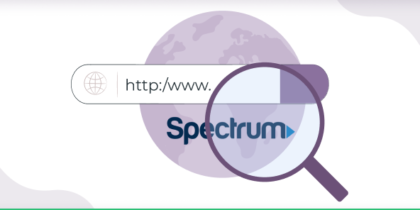It’s inaccurate to think of the internet as a virtual world. The internet, as we know it, has now become an extension of our real-world. Therefore, everything we do, such as shopping to recording our daily lives, is all logged somewhere on the internet or the cloud.
Unfortunately, we live in an era where everything that you own, that you touch, and that you interact with is stored in some form of a database. At any point in time, the data can be used, shared, and exchanged.
Can Digital Presence be deleted?
In today’s technologically advanced times, it’s isn’t easy to think of a part of our lives that isn’t online. Maybe you’re thinking of erasing yourself from the internet. In that case, there is some bad and good news for you.
Let’s start with the bad news:
The bad news is that you can’t completely erase yourself from the digital realm. Government entities post public records of your personal details, such as motor vehicle records, voter files, property tax assessments, professional licenses, and court files are all on the digital books, and they’re not going anywhere.
But now, the good news:
Fortunately, you can erase a lot of this information, which will drastically reduce your digital footprint. Here’s how to begin erasing yourself from the internet:
Note: When we talk about deleting online accounts, some social platforms never entirely delete your data. This is because social media platforms have developed their intelligence from analyzing user data. This means the more data they have, the more intelligent they are, and the more relevant the search results.
Delete Your Online Accounts
On average, an internet user has over 90 online accounts. From social media accounts to online shopping accounts, our digital presence is everywhere. You might be asking yourself, do I really have that many accounts? The truth is that you do, and you don’t even realize it as these accounts have been made on numerous sites over the years.
Let’s not forget streaming accounts such as Netflix, Hulu, and others. You might argue that you don’t use applications of these services on your phone, but the reality is that tech giants like Apple, Facebook, and Google have amassed your private information from multiple sources.
The first step to erase your digital footprint is to begin terminating your online accounts, especially the accounts that you are no longer using anymore. While this may sound like tremendous work, it’s a step that’s much needed to eliminate your online presence.
With methods such as Account Killer, DeleteMe, and several more available on the web, you can begin deleting your online accounts, and to some extent, the information stored on these accounts.
You may also check the below-mentioned guides if you want to know about the steps to delete your accounts from these social platforms.
There are also sites where you have some sort of ghostly presence, which essentially means that the account is not being maintained, but it does exist. Try to remember as many online accounts as you can possibly recall and note them down before you forget. If you have a password manager, you can easily pull up each account based on your login.
What’s worth remembering with social media platforms like Facebook, Twitter, and other platforms, is that you have probably used lots of third-party services that link into your account and given them permission to access your public profile, friends list, profile picture, date of birth, and more. This means you may have data on third party services as well.
Remove yourself from internet crawling sites
This entire process can be a little creepy, especially if you’re new to this. Are you still there? Okay, hang in there while we go through this process. Internet crawlers or data brokers are companies that collect your data themselves or purchase it from companies that are selling your data, such as credit card companies.
Today, it doesn’t take a genius to learn your phone number, home address, and criminal record, as nearly all of this information, is available on the web. A stalker just has to do a little bit of digging, and they can learn a lot about you in a matter of minutes.
An individual can also gain access to your private information by paying money to a “data broker,” also known as a “people-search site.” Shockingly, such private information is usually available for free.
Data brokers like Spokeo collect information from numerous brokers and frequently update their collected data by taking information from social networking sites and several online sources.
While you might argue that your information is outdated and that no one would be interested in your data, the truth is that each dataset is valuable to a marketer or bad actors. Having this information just freely float around on the internet can be risky, mainly when we live in a world of internet trolls.
A troll might manage to get a hold of your details such as your name, phone number, address, or online accounts, and could potentially blackmail or harass you. Some cases can go as far as stalking and bullying. Due to this, cyberstalking and cyberbullying cases have been on the rise, especially among teens who excessively share their private information on the web.
Another big step towards having your information wiped off from the web is to contact data broker sites and request them to remove your data from their database.
Close your email accounts
The third major step is to close down your email accounts. Thinking about closing your email accounts may come as a shock and most people will turn back at this point. However, keep in mind that you’re talking about going off the grid and that means giving up on the internet life you were previously living.
Emails, along with phone numbers, are the most popular modes of communication around the world. At the same time, email addresses are widely used for all sorts of online transactions, especially when setting up an account and online banking.
While you might choose to not deactivate your email account and just keep it running silently in the background, it’s worth mentioning that email accounts often get hacked. As data breaches increasingly become common, your account might end up getting hacked without you even realizing it. Having an email account means your emails and other associated data is stored on the email company’s server. Hence, closing your email account will vary from email service to email service. Let’s take the biggest email service – Gmail, for example.
Gmail is the most popular email service with close to 2 billion users. Before you head over to close your Gmail account, you might want to download and save your Gmail data. Having your data with you can be helpful if you ever end up needing it later on in life.
Having your Gmail data on you will also prove to be beneficial if you end up reactivating your Gmail account later on. While Google says that if you have recently deleted your Gmail account, you might be able to recover your emails. However, it’s still unclear about how long you have until you can reactivate the account as the number of days isn’t mentioned, so be sure to download your Gmail data before you delete the account.
Use a VPN
Giving up the internet doesn’t just mean that you’ll be deleting your social media platforms and email accounts, it also means giving up your internet banking conveniences, online shopping activities, and backing up data to the cloud.
Since a majority of us are used to web-based accessibilities, it’s isn’t difficult to live a life without the internet, but it’s a good step towards aiding your online privacy and security. While living a life without the internet can seem impossible, you can begin by taking baby steps.
However, if you’re not ready to give up on the internet entirely, you can make your internet activities and browsing habits much more private on the web with a VPN. A VPN, or Virtual Private Network, routes your internet traffic via a secure tunnel and encrypts your entire internet connection, keeping it secure from snoopers and malicious actors.
In the corporate world, VPNs are widely used by companies to give their employees secure remote access while they work from home. A user can be anywhere in the world connected to a public or private WiFi and they can carry on with their online activities without any interference.
Ordinary internet users can use the VPN to carry on with their online banking and online shopping habits securely. At the same time, users can bypass geo-restrictions and gain instant access to sites and content that is unavailable in their region, such as accessing US Netflix and other streaming content.



